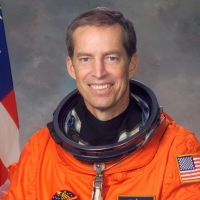
-
Jim Wetherbee
With thirty-five years of experience in high-hazardoperational environments, Jim enjoys consulting with leaders and operators in dangerous endeavors with critical mission objectives. He is the only American astronaut to have commanded five missions in space, and is the only person to have landed the Space Shuttle five times. Jim earned a Bachelor of Science in Aerospace Engineering from the University of Notre Dame in 1974. He began his career as a Naval Aviator aboard the USS John F Kennedy, flying the A-7 Corsair. After graduating from the US Naval Test Pilot School, Jim performed flight-testing of the F/A-18 Hornet. In 1984, Jim was selected to join NASA in its tenth group of astronauts. Over a twenty-year career, he flew six times on the Space Shuttle. The five-time commander flew two missions to the Russian Space Station, Mir, and two missions to the International Space Station. In 1998, he was appointed as the Director, Flight Crew Operations, specifically selected to improve the flight and ground safety in the astronaut corps. Based on that success, Jim was selected after the Columbia accident to enhance the safety aspects in the organizational culture at the Johnson Space Center, home of NASA’s human space flight program. Bringing his experience from the aerospace industry as a former NASA executive and astronaut, Jim joined the oil and gas industry as a Safety and Operations Auditor for BP. Four years later, he was selected as a VP for Operating Leadership. In this role, he supported efforts to improve performance results consistently over the long-term, by emphasizing effective leadership behaviors as a key way to influence and inspire people to conduct safe and high-quality operations. After successful careers in naval aviation, aerospace, and the oil and gas industry, Jim is passionate about helping leaders and operators perform successfully in hazardous environments.
-
09:15 - 10:35 Controlling Risk - In A Dangerous World
-
